It’s book review day! I hope you have your TBR lists ready, because I’ve got some great books to share with you today. Let’s get right to the reviews.
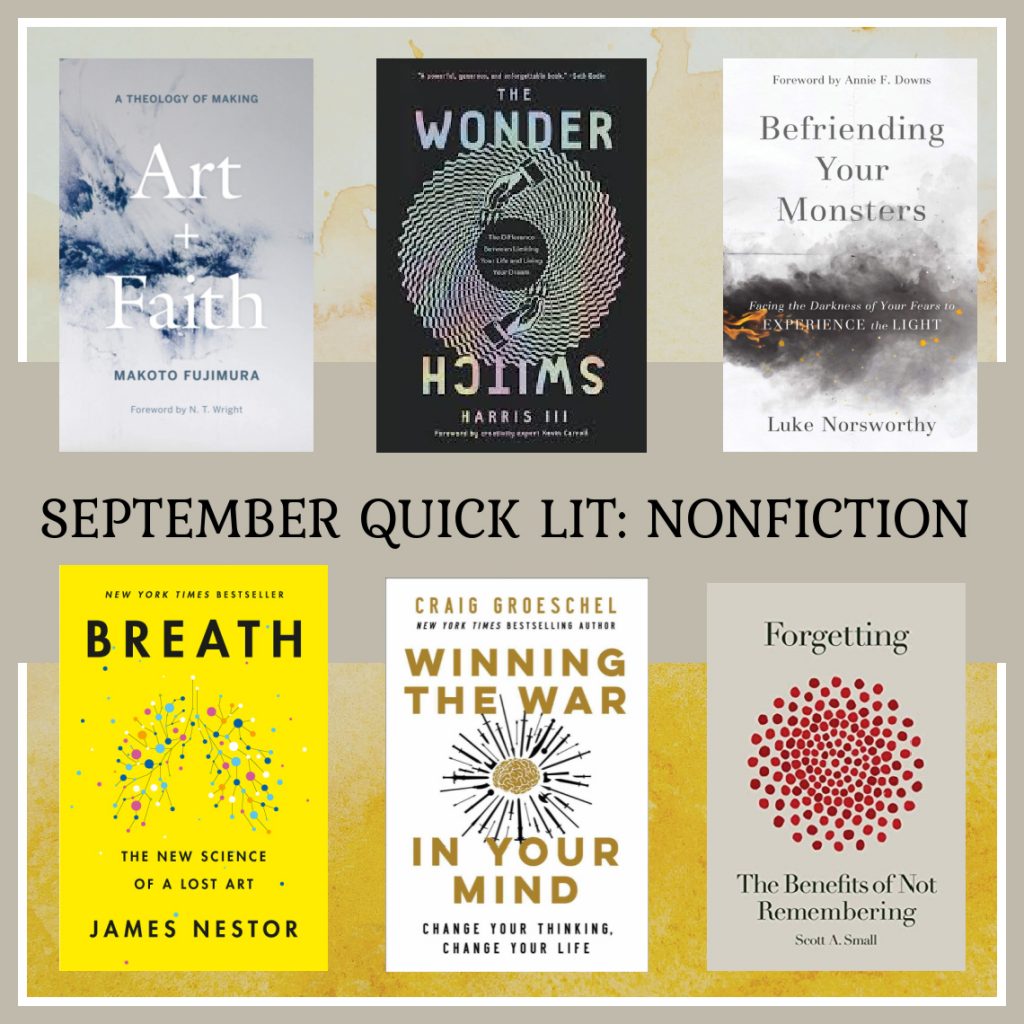
Art and Faith: A Theology of Making, by Makoto Fujimura: There was a time in Christian history when faith and art were intertwined. Majestic cathedrals, elaborate murals, and richly layered hymns reflected the glory of God and spoke of the connection between Creator God and us, His workmanship, who were made in His image as creative beings. In contemporary Christian circles, art has taken a back seat to function and practicality. We have neglected the artfulness of our faith and in doing so we have lost touch with core aspects of God and relinquished abundant blessings that come to us through the arts.
In Art and Faith, world-renowned painter Makoto Fujimura explores creativity and the spiritual component to “making.” He shows how his painting is just as theological as it is aesthetic, and he examines the divine nature of creativity, its connection to New Creation theology, and the ways art turns our gaze to the Creator and the lessons He has for us. Fujimura uses Biblical examples to show that creativity is central to core Christian values of love, hope, and faith, and how creativity opens our imaginations, joins our hearts with that of Christ, and provides opportunities for us to co-create alongside the Lord—something we were designed from the beginning of time to do.
This is a beautiful book, in both content and form. (I suppose it shouldn’t surprise me the an artist would write so artfully!) Fujimura opened my eyes to areas where I have been misguided in my thinking about creativity and aesthetics, deeming them nice but unnecessary when in actuality they are pivotal for not only human existence but spiritual flourishing. He is helping me see the eternal value in my own creativity and sparked in me a desire to rekindle my creative instincts and help to ignite them in my children.
My Rating: 4 Stars.
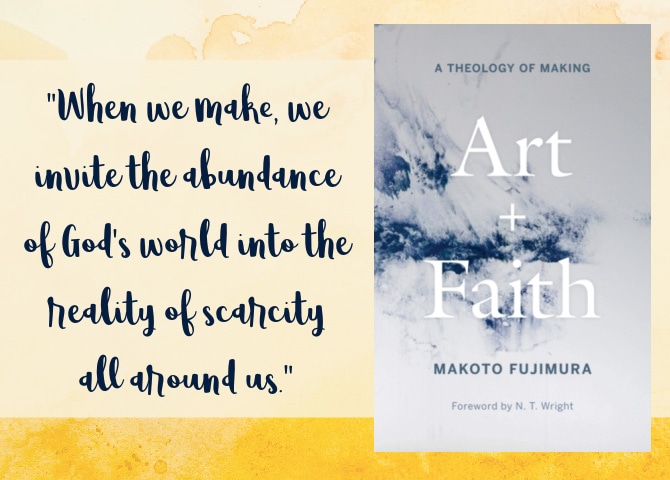
Winning the War In Your Mind, by Craig Groeschel: Scripture tells us that we are engaged in an ongoing spiritual battle, and nowhere is the war more fierce than in our own minds, where Satan is continually at work, planting lies and deception. The Bible dedicates a LOT of page time to the subject of our thought lives, and now we have the science to back up what followers of Christ have long known to be true. In Winning the War In Your Mind, pastor Craig Groeschel blends science and Scripture to show how changing our thinking can change our lives. . . because our lives are always moving in the direction of our strongest thoughts, and what we think and believe directly impacts our actions, futures, and our ability to engage in healthy spiritual warfare against the enemy of our soul.
I have spent quite a bit of time learning about these concepts over the past year and this book came to me at exactly the right time, solidifying my commitment to many tactics I’ve already been implementing and offering some new exercises to add to my tool kit of mental rewiring. The book is built upon four principles: The Replacement Principle (remove the lies we believe and replace them with truth); the Rewire Principle (dig new trenches of belief to form new habits and ways of thinking); the Reframe Principle (adopt new ways of viewing our experiences); and the Rejoice Principle (reclaiming our minds and our faith through praise, worship, and gratitude). These principles are very similar to those Caroline Leaf discusses in Cleaning Up Your Mental Mess, and I found Groeschell’s take much more accessible and relevant for me as someone who wants to approach this topic from a Biblical framework.
I love that the Christian church is beginning to take notice of the lack of attention we’ve paid in the past to emotional and mental wellness; it’s encouraging to see high-profile pastors addressing these issues, and Groeschel handles the subject matter beautifully, sharing candidly from his own experience without allowing his stories to dominate the message. His words are encouraging and thoughtful, simple to apply if not always easy.
My Rating: 4.5 Stars (Rounded down to 4 Stars on Goodreads.)
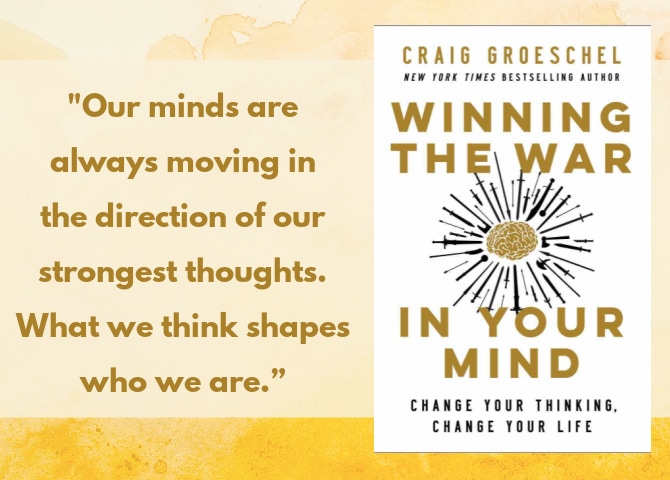
Wonder Switch: The Difference Between Limiting Your Life and Living Your Dream, by Harris III: This was my summer selection for a book on the topic of Wonder. The author comes from a unique perspective on the subject and I loved his take, as well as the practical applications he offers. You can read my full review of the book, including my favorite takeaways, here.
My Rating: 5 Stars.
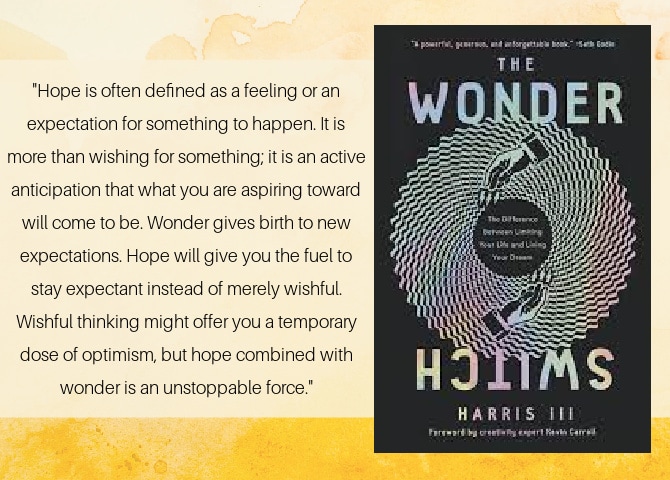
Breath: The New Science of a Lost Art, by James Nestor: We all breathe all day, every day, and again all through the night, but few of us give much thought to those 25,000 inhalations and exhalations we take every twenty-four hours. Breathing is a prominent component of our physiology and our health, and many ancient cultures understood this, leading to much more careful attention to breathing among previous generations. Unfortunately the intricacies of our breath have received little attention from modern medical and scientific communities.
Recent science is beginning to take notice of this “missing piece” as doctors and researchers start to explore the ways that we breathe and how these methods can impact our physical and emotional health, our habits, our performance and mental clarity, and even our anatomy. In Breath, journalist James Nestor explores the history and science of breathing, examining scientific findings while also undergoing his own personal experimentation in order to understand more about breath.
Before reading, I didn’t know if it was possible for a book on such a seemingly obscure subject could hold my attention for the length of a full book, but Nestor’s surprising facts and counterintuitive conclusions captured my attention and left me wanting to know even more. I had no idea of the impact our breathing can have on our metabolism, dental health, or brain chemistry. I was unaware that breathing has changed so much among humans and how this has affected the structure of sculls and mouths, resulting in many modern-day health problems that could otherwise have been avoided. I was amazed to learn that many of my assumptions about the process of breathing (nose vs mouth breathing, deep vs shallow breaths, the importance of oxygen over carbon dioxide, just to name a few) were entirely incorrect. And I appreciated reading some ways I can improve my own well being through some simple breath practices.
This is a must-read for anyone interested in the science of the body or who enjoys having their mind blown by intriguing and relevant medical findings. The book is filled with great facts, and Nestor’s writing is accessible and engaging, bringing his own experiences to the page to add interest to what might have otherwise been a fairly dry tome. Perfect for fans of Bill Bryson’s The Body or books by Michael Pollan.
My Rating: 4 Stars.
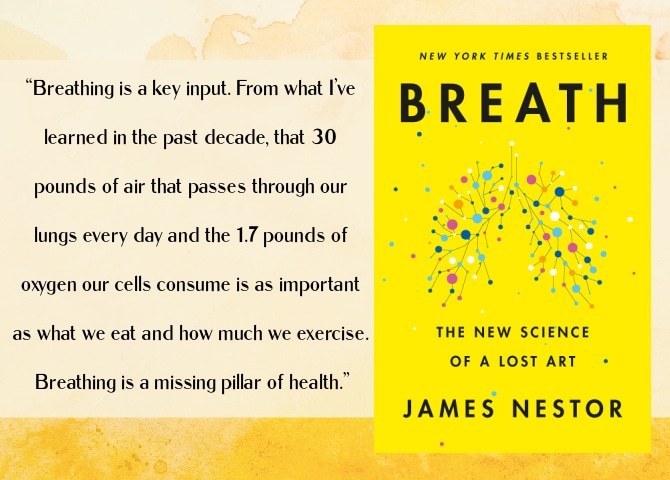
Befriending Your Monsters: Facing the Darkness of Your Fears to Experience the Light, by Luke Norsworthy: Monsters are everywhere: in books and on television, in movies and fairy tales, on Halloween ads and, of course, in our nightmares. These frightening creatures might not be real, but their imagined existence reflects the TRUE monsters that dwell within us—the lies we believe, dreaded emotions we feel, and crippling stories we tell ourselves. These monsters are every bit as terrifying and destructive as the monsters we see on the big screen, and ignoring them is not an option. But according to pastor and podcast host Luke Norsworthy, the solution isn’t to defeat these monsters, but to notice, befriend, and learn from them. . . because in stepping into the darkness and coming face to face with our biggest fears and foes, we are freed to become who God has made us to be.
In Befriending Your Monsters, Luke illuminates the presence of monsters, explains how they have the potential to destroy or deliver us, then zooms in on three universal monsters of Comparison, More, and Success—showing how these monsters lure us in, and highlighting the spiritual gifts that come from bringing each specific monster into the light. Luke ends the book by helping us gear up for encounters with our monsters, knowing where we can find them, and determining how to respond when we do.
This books takes a challenging topic and flips it on its head, making impossible tasks seem less daunting and showing that frightening prospects of self exploration and spiritual work can lead to hope and restoration. Many of the ideas presented here seem counterintuitive, but Luke shows them to be true through scripture and his own life. . . and I believe him, because I have seen them to be true for myself: as I’ve confronted my scariest monsters, I’ve seen how much they have to teach me, and how they will NOT defeat me but draw me closer to the Lord and make me better equipped to live a life abiding in Him.
Though the content is serious, the tone of the book is refreshingly lighthearted and at times extremely funny. I’ve grown to appreciate Luke Norsworthy’s sarcasm and self-deprecation through his podcast, and that comes through in this book, but so does a depth of wisdom and spiritual maturity, and a clear-eyed understanding of the correlations between spirituality, psychology, and human tendencies. I had highlights on nearly every page which, for me, is the sign of a fantastic book.
My Rating: 5 Stars.
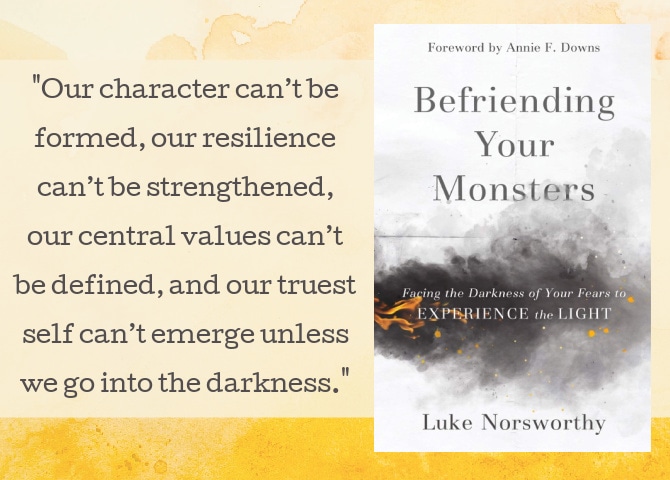
Forgetting: The Benefits of Not Remembering, by Scott A. Small: I’m on record for my extreme aversion to forgetting. Just weeks ago I confessed that my dream superpower would be to have a pristine memory. In his book Forgetting: The Benefits of Not Remembering, Dr. Scott Small (director of the Alzheimer’s Disease Research Center at Colombia University) argues that remembering isn’t all it’s cracked up to be and that forgetting is actually pivotal for proper brain functioning.
Until recently, scientists did not understand the purpose of forgetting, but current research in the fields of psychology, neurobiology, medicine, and computer science are shedding light on this aspect of our cognition, revealing that forgetting is not a shortcoming but is actually pivotal for optimal mental health. Dr. Small digs deep into the research to explain how and why we experience lapses in memory and how this forgetfulness is crucial for decision making, emotional intelligence, creativity, complex forms of thinking and processing, life satisfaction, and relational health.
This book is dry in parts, getting pretty deep into the brain science and mechanics of cognition. But Dr. Small does a good job of interpreting the data and helping draw meaningful conclusions and applications. I was shocked by many of the book’s findings and found relief and hope in learning that something I’ve long resented (my forgetfulness) is actually beneficial. This book offers hope for those whose loved ones have experienced dementia or are fearful of the disease themselves. It is both a fascinating and useful read that, like so many books related to the body, left me marveling at God’s handiwork in creating such complex beings.
I won’t remember every detail of this book. Generally this is something that would bother me, but this book has taught me that forgetting parts of what I read is just fine.
My Rating; 4 Stars.
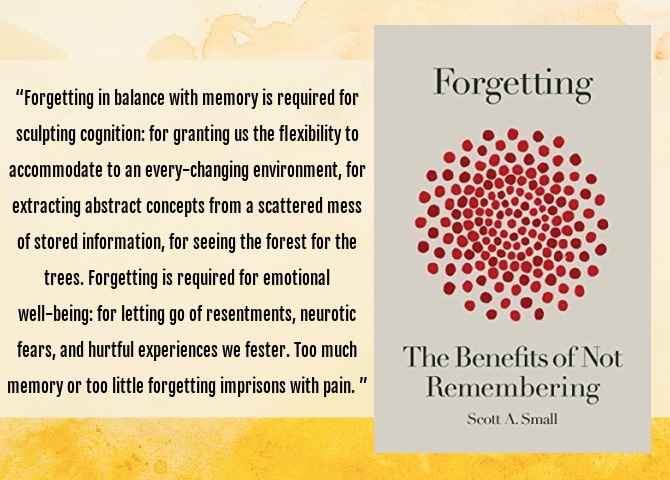
Next week I’ll share reviews of the seven fiction titles I read in the past month. Until then, happy reading friends!